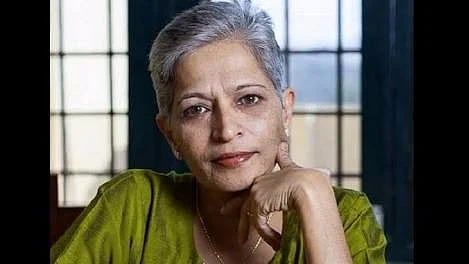Narendra Dabholkar in August 2013, Govind Pansare in February 2015, Professor MM Kalburgi in August 2015. Senior journalist and activist Gauri Lankesh was the latest victim of an alleged organised attack on dissenting voices in the country.
These attacks on rationalists followed a pattern. They were pre-planned and at regular intervals, aiming to create fear among a section of society. But despite fitting the criteria, they have not been labelled “acts of terror”, but mere murder cases.
The question of whether the police should include terror charges has been a major point of contention. While many argue that these ‘assassinations’ don’t amount to terrorism, the double standards are exposed by a case in 2012.
Five years ago, 13 people, who were arrested from Bengaluru and Hubli, were booked under sections of Prevention of Unlawful Activities Act, which deals with terrorism.
These men were arrested for conspiring to kill a journalist and right-wing political leaders in the state. The module had planned to assassinate columnist Pratap Simha, who later became an BJP MP, BJP leader Prahlad Joshi and Shri Ram Sena Chief, Pramod Muthalik and a senior journalist Vishweshwara Bhat.
Even though the attack was not carried out, these men were booked under the Prevention of Unlawful Activities Act. The case was later taken over by the National Investigation Agency (NIA), India’s premier anti-terror investigation agency. Based on the chargesheet filed by NIA, the 13 accused were found guilty by a special court in Bengaluru in 2015.
An act of terror is defined in the Prevention of Unlawful Activities Act as, “Whoever does any act with intent to threaten or likely to threaten the unity, integrity, security or sovereignty of India or with intent to strike terror or likely to strike terror in the people or any section of the people in India or in any foreign country.”
Vidya Dinakar, social activist and associate of Gauri Lankesh said that Gauri was not killed, but assassinated for her political stand. “This is an act of terror. There is a systematic attack on progressive thinkers and rationalists in the country. This is a clear plan to create fear and terror among the voices of dissent, which is the definition of terrorism,” she said.
The motive behind the assassination of Gauri will be known only after the investigation. However, the Bengaluru police investigation has revolved around the political circumstances surrounding her killing given that Gauri was a vocal critic of Hindutva politics.
However, a retired police officer pointed out that only when the motive of the murder is ascertained, can a debate on whether it is an act of terrorism be proved.
“If I were the investigator, I wouldn’t call it an act of terrorism yet. It is possible that some personal reasons may emerge during investigation. And if political reasons are behind it, legal opinions should be sought before it is made an act of terrorism,” said ST Ramesh, former DG and IGP, Karnataka police.
While the debate continues, the practice of filing terror charges only when the victims and attackers belong to a certain religious bracket needs to change. Any systematic attack to keep a section of the society under fear should be considered an act of terror.
